Synthetic polymers developed for innumerable purposes get couched up and struck in the ecosystem without getting degraded, which also adds toxic chemicals to the surroundings; invariably affecting the entire lives of this era.

Packaging films being used in the food sector contributes accountably higher for this built up, which affects the food chain and causes an imbalance in the living system. The packaging alone is responsible for approximately one-third of the world’s garbage. This is a big concern among the food and packaging manufacturers and they are continuously making efforts to develop packages that can be recycled, in order to reduce the amount of waste. In this scenario, edible packaging plays a very important role in minimizing packaging material wastage from a sustainability perspective.
Nature: The Source of Inspiration
The concept of using an edible film or coating to extend the shelf life of fresh foods and protects them from harmful environmental effects is not a novel one. In fact, the idea derives from the natural protective coating such as the skin of some fruits and vegetables. Covering foods with lipid substances like waxes and fats to retard desiccation is a very old practice. For example, hot-melt paraffin waxes became commercially available in the 1930s for coating citrus fruits to retard moisture loss, and carnauba wax oil-in-water emulsions were developed in the early 1950s for coating fresh fruits and vegetables.
Fundamentals of Edible Packaging
Edible packaging comprises of edible films, sheets, coatings, and pouches. Edible films and edible sheets differ from each other by their thickness, e.g. edible films have thickness <254 μm and edible sheets have thickness >254 μm. These are the standalone structures that are performed individually from the food and then placed on or between food parts or sealed into edible pouches, whereas edible coatings are skinny layers of edible materials formed directly onto the surface of the food.
هذه القصة مأخوذة من طبعة May 2019 من Food Marketing & Technology - India.
ابدأ النسخة التجريبية المجانية من Magzter GOLD لمدة 7 أيام للوصول إلى آلاف القصص المتميزة المنسقة وأكثر من 9,000 مجلة وصحيفة.
بالفعل مشترك ? تسجيل الدخول
هذه القصة مأخوذة من طبعة May 2019 من Food Marketing & Technology - India.
ابدأ النسخة التجريبية المجانية من Magzter GOLD لمدة 7 أيام للوصول إلى آلاف القصص المتميزة المنسقة وأكثر من 9,000 مجلة وصحيفة.
بالفعل مشترك? تسجيل الدخول
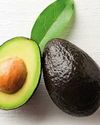
Avocados: Health Benefits And Sustainable Cultivation
ATTRACTIVE GROWTH SEGMENT - In only a few years, the avocado has developed from being a rather a and has become an integral part of modern cuisine and in restaurants throughout Europe and beyond.
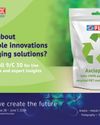
UFlex to Showcase Innovative and Sustainable Printing and Packaging solutions at DRUPA 2024
U Flex Limited, India's largest multinational flexible packaging and solutions company, is participating in DRUPA 2024, the premier global trade fair for print and packaging innovations, scheduled to take place in Dusseldorf, Germany from March 28 to June 7, 2024.

Hubergroup and Manroland Goss unite for Sustainable Packaging Innovation
Hubergroup, a global specialist in and chemicals, has partnered with manroland Goss web systems, a leading provider of web offset printing solutions, in a strategic collaboration.

Technological Advancements in the Premium Flavour, Extract and Concentrate Industry
Food Marketing & Technology Magazine had the privilege of hosting the fourth edition of their business webinar on “Technological Advancements in the Premium Flavour, Extract and Concentrate Industry” with Paul Ahn, Global Sales Manager, Flavourtech.

Flavourtech's Origins: From Wine to Worldwide Flavor Solutions
LEON SKALIOTIS, CEO of Flavourtech - Discover how Flavourtech, founded over 40 years ago by an innovative winemaker in Australia, evolved from addressing grape juice desulphiting to revolutionizing flavor extraction and concentration across various industries.

How CPG Companies Can Adopt Better Sustainable Packaging Practices in 2024
Sustainability has gone mainstream. With more switching to consumers environmentally friendly brands, it's become a central theme across all industries.

The Evolution of the Protein Value Chain Sustainable Protein Systems for a Growing World
As the world's population is on course to surpass ten billion by 2050, our food systems face the challenge of providing sustainable nutrition without further harming harming the planet. Animal-based diets and the reliance on animal-derived proteins are significant contributors to environmental degradation and public health issues. Not only is the global population increasing, but the expanding middle class in developing nations is driving a surge in protein demand, intensifying the strain on our environment.
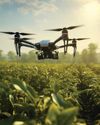
Implementing the Technological Intelligence in Agricultural Produce
It is estimated that by 2050 the I world's population will be around 10 billion. From employment generation to contribution to National Income, agriculture is important to all of us as agricultural produce is the core on which we survive. It contributes a significant portion to the economic prosperity of the developed nations and plays an active part in the economy of the developing countries as well.
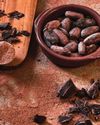
Cocoa Crises: A Sweet Industry's Bitter Challenge
As a pastry chef and entrepreneur running a small-scale baking business, I have always believed in the magic of cocoa. From the velvety richness of couverture chocolate to the deep, earthy notes of cocoa powder to the creamy allure of cocoa butter, these ingredients are the essence of our creations.
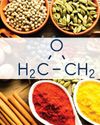
Ethylene Oxide (ETO) Detection in Ready-Made Spice Mixes: Ensuring Food Safety
INTRODUCTION - In the world of culinary delights, ready-made spice mixes hold a cherished place, adding convenience and flavour to countless dishes. However, recent concerns over food safety have brought to light the presence of ethylene oxide (ETO) in some of these products.